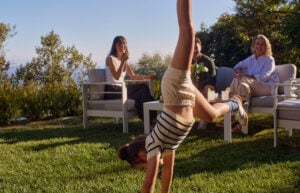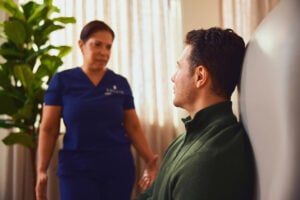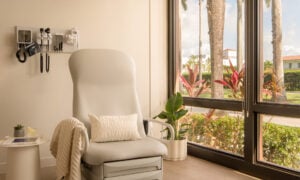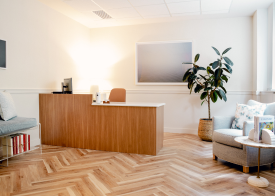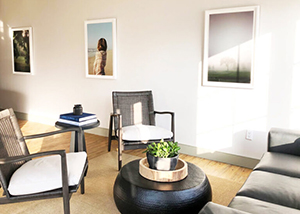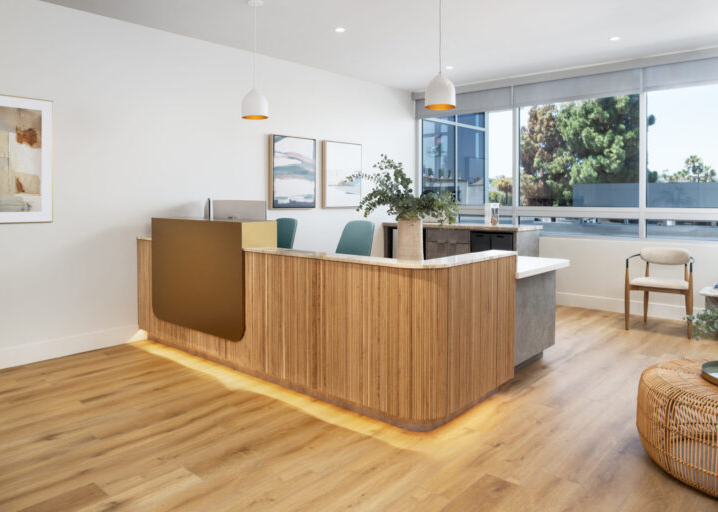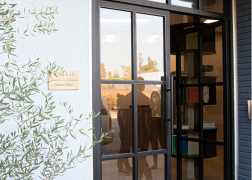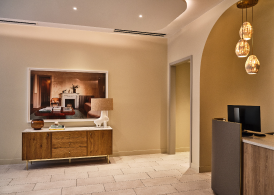You’ve dealt with more than your fair share of chronic conditions over the years. Let’s start with the wheat allergy that caused you so much pain—and caused your doctors so much confusion. How did you finally get the right diagnosis?
When I turned 18 and until I was about 21 years old and living in NYC, I began to have a host of issues: unexplained weight gain, acne, eczema, inflammation of face and hands after meals, acid reflux, IBS, irregular periods, low thyroid, and “arthritis” in my knees. I tried every diet out there, I even tried going vegan and training for a marathon at the same time, and I still gained weight. I would have crazy stomach issues and the doctor put me on Nexium and other meds for IBS. I didn’t have a period for six months and then had one every two weeks, so the OBGYN put me on birth control. The endocrine doctor put me on thyroid medication, and the knee doctor put me on anti-inflammatory medications (which caused even more digestive issues) for my “arthritis.” At 18, I was on the medications of an 80-year-old and none of them were solving my problem. I began reading Eat Right For Your Blood Type, The Diet Cure, and other natural health books. This was pretty progressive for 1999. When I mentioned a “wheat” or “gluten” allergy to a doctor, I was sort of laughed at. I even went to a gastrointestinal doc and he said, “Well, some people have sensitivities but I don’t think that’s what you have.” So I finally went back to my childhood allergist in Kentucky and begged him to test me for a wheat allergy—right after I had my grandma’s biscuits, of course. He did a prick test on my back and it exploded like a massive hive. I was right. I had a wheat allergy… AND a gluten sensitivity… and these little things were the reason for all of my problems. Once I eliminated them in my diet, I lost weight immediately, my thyroid normalized, my periods became more regular, I no longer had IBS or acid reflux, and the inflammation in my body and knees significantly decreased.Did that experience create a lot of distrust for you in the medical community?
Absolutely. I was taking medications for all of these different symptoms that were then causing me other symptoms. There was not a single doctor helping me find the root cause… nor was there communication between anyone. Not to mention, I was made to sound like I was “woo woo” when I listened to my body and did my own research. I believe that food can be medicine or poison but I do not think the medical industry thinks this way. They are so quick to give prescription medications versus finding a root cause. It’s sick care not health care. So I always seek doctors who are holistic in their approach while also being MDs. The majority of my health routine includes eastern and functional medicine to eliminate issues when they begin from the root. Overall, I think many chronic health issues are improved when food sensitivities/allergies are eliminated and lifestyle changes are made.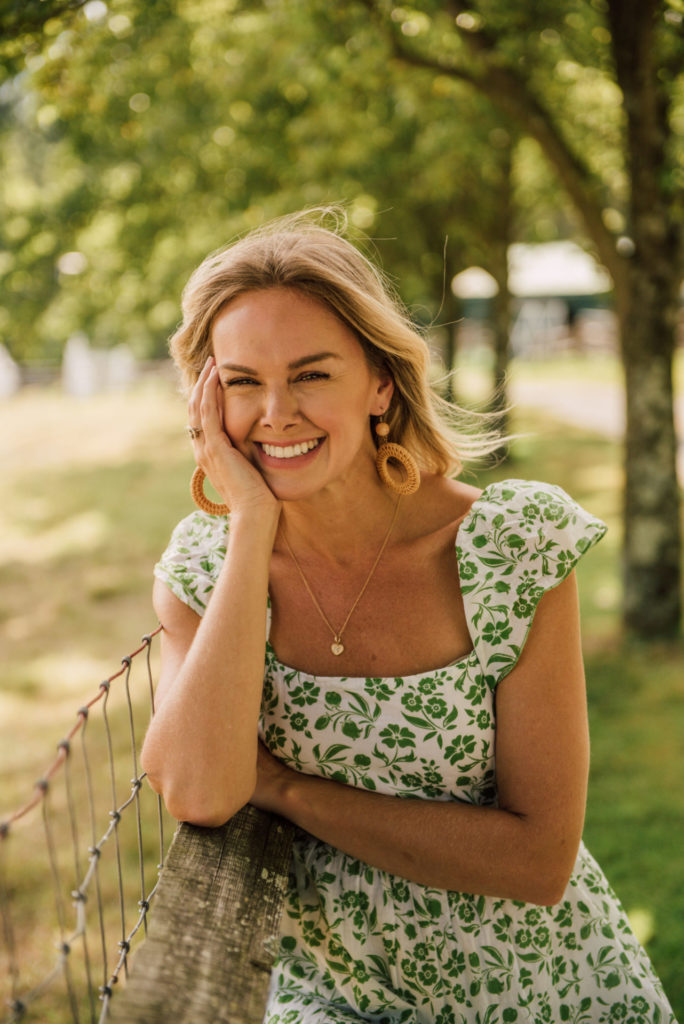
Can you tell us about your congenital heart condition? How did it lead to a string of misdiagnoses, and how did you finally resolve it?
I was born with a Ventricle Septal Defect aka a hole in my heart. My doctor, Jackie Noonan at University of KY Children’s Hospital, always felt that surgery would be more invasive than living with the condition as a child. In fact, the hole slowly began to close throughout my childhood. When I moved to NYC at 18, a team of respected heart doctors said I needed open heart surgery, but Dr. Noonan said, “Your heart is OK—the hole has gotten smaller. You’re fine. It’s not time yet.” Sweet relief! I trained for marathons, I did eight shows a week on Broadway, I was very active, and I lived as if there was nothing wrong with me. When I moved to Nashville at 28, the heart doctor came in white-faced and said, “You need open heart surgery.” This time, I was alone and scared, and he said I needed it immediately—like in the next month. He said they would have to cut my chest open and explained the lengthy recovery time. My response was, “I can’t! I have an album coming out next month.” I had priorities, damnit! Be gone death! Records must be released!! I had to call Dr. Noonan out of retirement. She brought in the adult doctors at University of Kentucky and collectively they decided it would be wise for me to close the hole within five years. Living in LA by this point, I went on a mission to find an adult congenital heart doctor who could do a procedure non-invasively. My husband connected me with his doctor at Cedars Sinai, who did extensive tests on me—including a heart MRI and a cardio cath—and found the doctor to do the procedure: Dr. Evan Zahn. Dr. Zahn took two catheters, put them through the arteries in both my groins (like two straws), and put two small titanium devices in the hole in my heart without ever cutting on me. I walked out of the hospital the next day and I was back at work five days later! Now my tissues have formed around the devices and my heart doesn’t have to work so hard to pump oxygenated blood to my body. Technology is amazing.Was it difficult learning to trust doctors again?
Yes. Still is. Bottom line, I have learned to trust myself and my own intuition about my health. When something sounds off to me, I get second and third opinions. I do my research. You must be your own advocate. There’s a tendency people (including myself) have to treat doctors as if they are Gods who have all the answers. They may be experts in a field you know nothing about, but you know your body better than anybody. Listen to it and to more than one doctor. Once I found my team at Cedar’s, I felt safe. I knew they approached my heart health like Dr. Noonan. Now that I have moved to NJ and I’m having to find a new heart team, I feel a bit uneasy. But I know what to look for now.“When I broke my big toe at 5:30pm on a Friday at rehearsal for a new musical, I would’ve been waiting in the ER for hours. I called Sollis, I was immediately taken into a patient room, and the doctor confirmed my toe was dislocated and expertly put it back in place so I could perform in my show.”
You also struggled with fertility—and found out you had endometriosis in the process. Tell us about your rocky journey into motherhood and what it felt like to finally give birth.
It wasn’t until I couldn’t get pregnant and began seeking fertility treatments that I found out I had endometriosis. Why aren’t vaginal ultrasounds at OBGYN check ups required for adults? It could have saved me so much time and pain. But my IVF doc discovered it and said it likely contributed to my fertility issues. I made additional dietary adjustments and began doing IVF successfully with a healthy pregnancy in the first round. I was very fortunate. But overall, I do not think we educate women on their bodies and how their diet, environment, and daily behaviors contribute to their reproductive health. It’s the center of health for women. Women’s bodies are amazing—they grow humans inside of them! But the medical system regarding childbirth can be so disempowering to women. I had taken a very extensive natural birthing class. My husband wanted to die. He hated it so much, but it armed me with every bit of knowledge I needed and what every medication would do to me and the baby. Even though I was very clear with my doctor that I’d be having a natural birth (aka no meds) in the hospital, they still tried to push me to take an epidural and use Pitocin. I was given a lot of raised eyebrows when I politely declined (multiple times). If I hadn’t been armed with the knowledge, I would have likely agreed just to please them and keep the hospital’s business running versus listening to my gut and my body. I had a natural birth, a healthy baby, and no postpartum complications.With everything your body has been through, what do you do these days to stay healthy?
I do regular acupuncture. I get blood work bi-annually and give it to my functional doctor to get me to optimal health with herbs and supplements (no meds). I still avoid wheat/gluten. I also avoid most dairy, processed foods, and refined sugar. I do Pilates, swim, bike and run/walk. Mostly I chase around a 3-year-old! I get my heart checked every two years now, and when I notice any problem with my body, I try to get to the root of it right away. Regular acupuncture helps that a lot.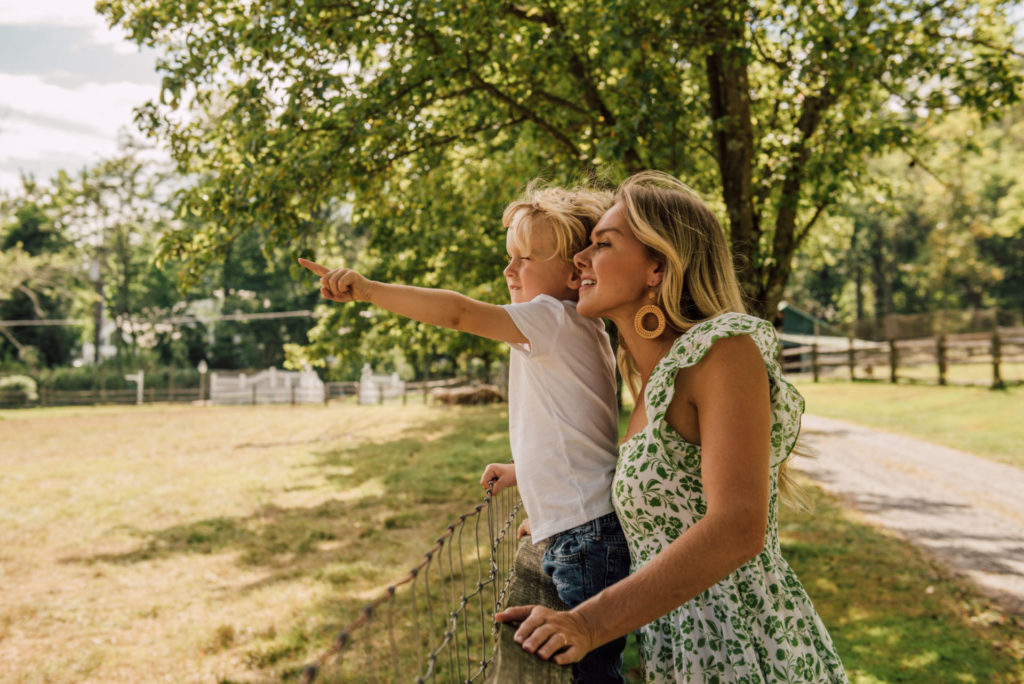
Can you share a bit about your Sollis experience?
So my first experience was 2017 when I broke my big toe at 5:30pm on a Friday at rehearsal for a new musical in NYC. This was late in the day, there were no doctors’ offices open, and I would’ve been waiting in the ER for hours or would’ve had to wait until Monday. My toe was in so much pain and felt as if it had been dislocated. I called Sollis and they said to come right over, I was immediately taken into a patient room, and the doctor on call confirmed it was dislocated and expertly put my big toe back in place. From there I had an X-ray and MRI on the spot. I had a fracture. I knew all of this within a few hours! Then Sollis connected me with a podiatrist who worked with the ballet dancers at School Of American Ballet and Lincoln Center and another podiatrist who used sonic waves to speed up my injury so I could perform in my show. By contrast, a fellow actor in my show got a knee injury the same day and had to wait five days for an MRI and diagnosis. Later, when living in LA, I had a knee injury… same thing, immediate MRI and then physical therapy the next day. My experience is that a quick diagnosis leads to a faster healing. Finally, I had been having some crazy pain in my abdomen last year. I had two different doctors say it was my small intestine and a digestive issue for which they prescribed herbs and various things, but it wasn’t improving. I called Sollis to see if I could get a CAT scan and they scheduled me for later that day. But when I got there, the doctor told me she believed it was my psoas muscle and not digestive. Turns out she was right. All it took was a few stretches and after three weeks of pain and a misdiagnosis, I was cured! As someone who is bouncing around from coast to coast—and who only seems to get sick or injured on a weekend—Sollis is a saving grace for a working mom in a physically demanding job who doesn’t have the time to wonder what’s wrong and delay healing.“The medical industry is so quick to give prescription medications versus finding a root cause. It’s sick care not health care.”
